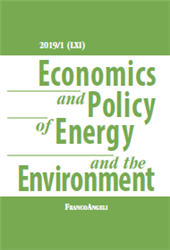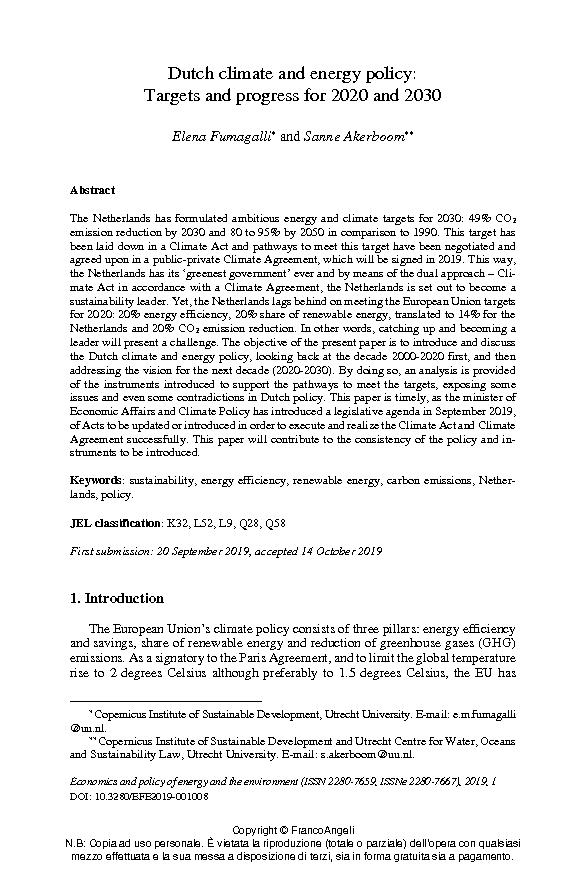Dutch climate and energy policy : targets and progress for 2020 and 2030
119-147 p.
The Netherlands has formulated ambitious energy and climate targets for 2030: 49% CO2 emission reduction by 2030 and 80 to 95% by 2050 in comparison to 1990. This target has been laid down in a Climate Act and pathways to meet this target have been negotiated and agreed upon in a public-private Climate Agreement, which will be signed in 2019. This way, the Netherlands has its 'greenest government' ever and by means of the dual approach - Climate Act in accordance with a Climate Agreement, the Netherlands is set out to become a sustainability leader. Yet, the Netherlands lags behind on meeting the European Union targets for 2020: 20% energy efficiency, 20% share of renewable energy, translated to 14% for the Netherlands and 20% CO2 emission reduction. In other words, catching up and becoming a leader will present a challenge.
The objective of the present paper is to introduce and discuss the Dutch climate and energy policy, looking back at the decade 2000-2020 first, and then addressing the vision for the next decade (2020-2030). By doing so, an analysis is provided of the instruments introduced to support the pathways to meet the targets, exposing some issues and even some contradictions in Dutch policy. This paper is timely, as the minister of Economic Affairs and Climate Policy has introduced a legislative agenda in September 2019, of Acts to be updated or introduced in order to execute and realize the Climate Act and Climate Agreement successfully. This paper will contribute to the consistency of the policy and instruments to be introduced. [Publisher's text].
-
Articles from the same issue (available individually)
-
Information
ISSN: 2280-7667
KEYWORDS
- Sustainability, energy efficiency, renewable energy, carbon emissions, Netherlands, policy



